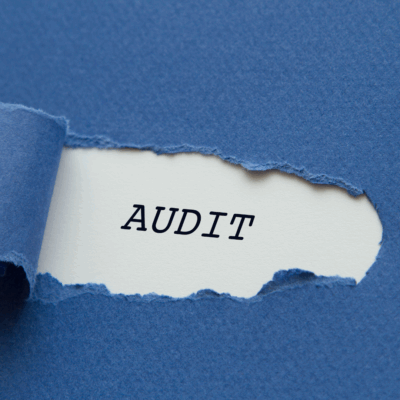The Growing Effect of AI Audits in Background Screening Compliance
Artificial intelligence is revolutionizing the hiring process, particularly in background screening.
Automated systems promise efficiency, accuracy, and consistency, but their implementation raises critical compliance questions. Human Resources professionals must ensure AI-driven screening tools align with the Fair Credit Reporting Act (FCRA), the Equal Employment Opportunity Commission (EEOC) guidelines, and evolving state laws.
AI audits have emerged as a necessary safeguard to confirm these systems meet legal and ethical standards while minimizing risk.
Understanding AI in Background Screening
AI-powered background screening tools process vast amounts of data, identifying trends and generating reports at unprecedented speeds. These systems are designed to reduce human bias and streamline hiring decisions. However, without proper oversight, AI can perpetuate existing biases or inadvertently produce results that conflict with regulatory requirements.
For example, the EEOC prohibits discrimination based on race, gender, age, or disability. AI-driven systems must be monitored to ensure they do not disproportionately disqualify candidates from protected classes. Similarly, under the FCRA, employers must provide job applicants with proper disclosure and an opportunity to dispute findings.
If AI algorithms automatically disqualify a candidate without due process, companies risk significant legal exposure.
The Role of AI Audits in Compliance
AI audits serve as a critical checkpoint to ensure compliance with federal and state regulations. These audits evaluate an AI system’s decision-making process, data sources, and potential for discriminatory patterns.
By systematically reviewing AI-driven hiring tools, HR professionals can validate fairness, transparency, and legal adherence.
A comprehensive AI audit includes:
- Algorithmic Transparency – Understanding how the AI system processes information, identifies candidates, and flags potential concerns.
- Bias Detection and Mitigation – Analyzing whether AI screening unfairly impacts protected groups and adjusting models accordingly.
- Regulatory Alignment – Ensuring the AI adheres to FCRA-mandated procedures, including providing candidates with required notices.
- Data Privacy and Security – Confirming compliance with state and federal data protection laws to safeguard personal information.
Navigating State-Specific AI Regulations
While federal regulations like the FCRA and EEOC guidelines provide a framework, many states have enacted additional compliance requirements for AI-driven hiring tools.
For example, Illinois’ Artificial Intelligence Video Interview Act mandates that employers inform candidates when AI is used in hiring decisions and obtain their consent. Similarly, New York City has introduced legislation requiring employers to conduct independent bias audits of AI employment decision tools before use.
For HR professionals, staying ahead of these regulations means conducting regular AI audits, adjusting policies as new laws emerge, and partnering with vendors that prioritize compliance.
Strategies for HR Professionals to Ensure Compliance
To effectively manage AI audits and compliance requirements, HR leaders should take proactive steps:
- Conduct Regular Audits – Establish a routine review process for AI-driven background screening tools. Engage third-party experts if needed to evaluate compliance and mitigate risks.
- Ensure Vendor Transparency – Work with background screening providers that offer clear documentation on how their AI models function and comply with legal standards.
- Educate Hiring Teams – Train HR teams on AI compliance risks and best practices to ensure that automated tools are used appropriately and ethically.
- Implement a Candidate Appeals Process – Maintain a clear and accessible method for applicants to challenge background screening results in accordance with FCRA guidelines.
- Stay Informed on Legislative Updates – Monitor changes to federal and state AI regulations to adapt screening processes accordingly.
Why AI Audits Are More Than a Legal Requirement
Beyond meeting regulatory obligations, AI audits offer HR professionals a competitive advantage. Companies that proactively audit and refine their AI-driven screening tools demonstrate a commitment to ethical hiring, fostering trust among job seekers and regulators alike. Ensuring transparency in background checks also enhances employer branding and helps attract top-tier talent.
AI audits are not just about avoiding fines or lawsuits; they are about creating a fair and compliant hiring process that aligns with both business objectives and legal obligations. By embedding AI audits into their compliance strategy, HR professionals can confidently leverage technology while upholding industry best practices.
Moving Forward: Strengthening Compliance in AI-Driven Screening
As AI continues to shape the hiring landscape, HR professionals must remain diligent in evaluating and auditing these tools. While automation can improve efficiency, unchecked AI-driven background screening can expose companies to compliance failures and reputational harm. By implementing regular AI audits, ensuring alignment with FCRA, EEOC, and state laws, and fostering a culture of transparency, HR leaders can responsibly integrate AI into their hiring processes.
The growing role of AI audits underscores the need for a balanced approach—one that leverages technological advancements while maintaining legal integrity and fairness. By taking proactive steps today, HR professionals can safeguard their organizations against compliance risks and build a more equitable hiring ecosystem for the future.







